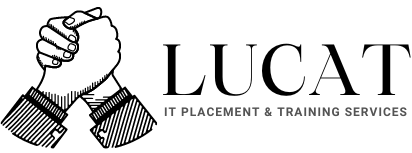Dive into the world of web development with LUCAT Institute’s PHP course, designed to equip you with essential skills for creating dynamic and interactive websites. This course offers a thorough exploration of PHP, covering fundamental concepts such as syntax, variables, and control structures, as well as advanced topics including object-oriented programming, database interactions with MySQL, and integrating PHP with HTML and JavaScript. Students will gain hands-on experience through practical projects, learning to build robust web applications, manage user sessions, and implement security best practices. With a focus on real-world applications and industry standards, LUCAT Institute’s PHP course prepares you to excel in developing server-side solutions, making it an ideal choice for aspiring web developers and professionals looking to enhance their skill set.

PHP (Hypertext Preprocessor) is a widely-used, open-source scripting language designed for web development. It allows developers to create dynamic and interactive web pages by embedding code into HTML. PHP is particularly well-suited for server-side scripting, database integration, and session management.
Course Curriculum
1. Introduction to PHP
- Overview of PHP and its uses
- Setting up the development environment
2. PHP Basics
- Syntax, variables, and data types
- Control structures (if, loops, switch)
3. Functions and Arrays
- Defining and using functions
- Working with arrays and array functions
4. Object-Oriented Programming (OOP)
- Classes and objects
- Inheritance, polymorphism, and encapsulation
5. Working with Forms
- Handling form data with PHP
- Validation and sanitization
6. Database Integration
- Connecting to MySQL databases
- Performing CRUD operations (Create, Read, Update, Delete)
- Using PDO (PHP Data Objects) for secure database access
7. Sessions and Cookies
- Managing user sessions
- Working with cookies for tracking and preferences
8. Error Handling and Debugging
- Error reporting and handling
- Debugging techniques and tools
9. PHP and HTML Integration
- Embedding PHP into HTML
- Generating dynamic content
10. Security Best Practices
- Securing PHP applications
- Preventing common vulnerabilities (SQL injection, XSS)
11. Practical Projects
- Developing dynamic web applications
- Real-world case studies and problem-solving
This curriculum offers a comprehensive foundation in PHP, equipping students with the skills to build and maintain dynamic web applications efficiently.

